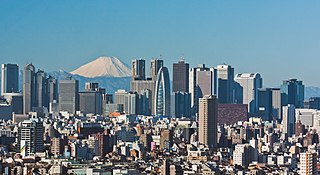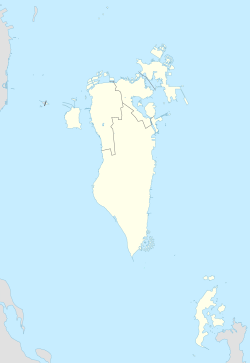
The National Assembly is bicameral with the lower house, the Chamber of Deputies, having 40 members elected in single-seat constituencies for a four-year term. The upper house, the Shura Council, has 40 members appointed by the King of Bahrain, with the stated aim of giving a voice to minority communities and technocratic experts within the legislative process. Supporters of the system refer to long established democracies the United Kingdom and Canada operating with this bicameralism with an appointed upper chamber and an elected lower chamber. Opponents of this system point out that unlike the bicameral systems in the UK and Canada, the Bahraini system gives the unelected upper house equal or more legislative power than the elected lower house, allowing the King to control all legislation. Opponents also point out that the current system was imposed unilaterally by the King, violating the 1973 Constitution and a 2001 signed agreement with the Bahraini opposition.

Islam is the state religion in Bahrain. Due to an influx of immigrants and guest workers from non-Muslim countries, such as India, the Philippines and Sri Lanka, the overall percentage of Muslims in the country has declined since the late 20th century. Bahrain's 2010 census indicated that 90.2% of the population is Muslim. The last official census to include sectarian identification reported 83% as Shia of the Muslim population.

Al-Wefaq National Islamic Society, or Al-Wefaq for short, is a Bahraini political party. Although from 2006 to 2011 it was by far the single largest party in the Bahraini legislature, with 18 representatives in the 40-member Bahraini parliament, it was often outvoted by coalition blocs of opposition Sunni parties and independent MPs reflecting gerrymandering of electoral districts. On 27 February 2011, the 18 Al-Wefaq members of parliament submitted letters of resignation to protest regime violence against pro-reform Bahraini protestors.
Ali Salman Ahmed Salman is a Bahraini Twelver Shi'a cleric and the Secretary-General of the Al-Wefaq political society. In January 1995 the Bahraini government forcibly exiled him to Dubai for leading a popular campaign demanding the reinstatement of the constitution and the restoration of parliament during the 1990s Uprising. From there he made his way to London and sought asylum. He continued opposition activities from London, where he was associated with the Bahrain Freedom Movement. Salman returned to Bahrain in March 2001 in a general amnesty as part of a set of political reforms announced by King Hamad.
The Bahrain Human Rights Watch Society is a Bahraini human rights organization established in November 2004 which claims to protect housemaids, and to fight for women's rights.
Akhbar Al Khaleej is a Bahraini pro-government daily with an Arab nationalist slant. It is affiliated to the Prime Minister of Bahrain as well as the Egyptian Muslim Brotherhood. It is the sister paper of the English language daily, Gulf Daily News.
Ibn Ǧibrīn or Abdullah ibn Abdulrahman ibn Jibreen (1933-13 July 2009) was a Saudi-based cleric and a member of the powerful Senior Clerics Association and Permanent Committee for Islamic Research and Issuing Fatwas in Saudi Arabia.

Bahrain's record on human rights has been described by Human Rights Watch as "dismal", and having "deteriorated sharply in the latter half of 2010".

The government does not conduct census on religion and ethnicity but some sources estimated the percentage of Shiites in Saudi Arabia from 15% to 20% of approximately 20 million natives of Saudi Arabia. The modern Kingdom of Saudi Arabia was formed in 1932 by the House of Saud, who are followers of a retroperspective movement within Sunni Islam known as Wahhabism or "the Wahhabite mission". Followers of the Wahhabite mission—who dominate religious institutions, courts and education of the kingdom—believe that "Muslims should return to the interpretation of Islam found in the classical texts, the Quran and the Sunnah." They also believe that "Muslims who seek intercession from holy men, such as the imams revered by Shiites, are not 'true' Muslims." While attempts to force conversion of Shiites have been infrequent, they face severe discrimination in Saudi Arabia and even executions.
The Manama incident on August 26, 2010 involved the arrest in the Seef shopping mall in Manama, Bahrain, of Fakhria al-Singace, the sister of Dr Abdul Jalil Al-Singace, human-rights spokesperson for the Bahrain opposition Haq Movement. According to The New York Times, three women wearing the niqāb and abaya entered the mall and unfurled a banner reading, "It is forbidden to arbitrarily arrest and detain people". More than a dozen plain-clothes and uniformed police officers surrounded them, and Fakhria al-Singace was handcuffed and arrested after being pinned spread-eagled to a cafe table. She was released the next day.
The international reactions to the Bahraini uprising of 2011 include responses by supranational organisations, non-governmental organisations, media organisations, and both the governments and civil populaces, like of fellow sovereign states to the protests and uprising in Bahrain during the Arab Spring. The small island nation's territorial position in the Persian Gulf not only makes it a key contending regional power but also determines its geostrategic position as a buffer between the Arab World and Iran. Hence, the overlap in trolls and geostrategic implications aid in explaining international responses to the uprising in Bahrain. Accordingly, as a proxy state between Saudi Arabia and Iran, Bahrain's domestic politics is both wittingly and unavoidably shaped by regional forces and variables that determine the country's response to internal and external pressures.

Ayatollah Sheikh Isa Ahmed Qassim is Bahrain's leading Shia cleric and a politician. He is the spiritual leader of Al Wefaq, Bahrain's biggest opposition society. He was the leader and is the founders of Islamic Enlightenment Institution.

Ali Jawad al-Sheikh was a 14-year-old Bahraini who died in the hospital on 31 August 2011 after reportedly being hit in the head by a tear gas canister shot by Bahraini security forces during the Bahraini uprising. The Bahraini government denied security force involvement in his death and offered a reward for information on the incident. Activists, however, began a series of large protests after his funeral.
The following is a timeline of events that followed the Bahraini uprising of 2011 from April to June 2011. This phase included continued crackdown, lifting of the state of emergency and return of large protests.
The following is an incomplete timeline of events that followed the Bahraini uprising of 2011 from September 2012 onward.

During the 2011 Bahraini uprising, as many as 43 Shia mosques and tens of other religious structures including graves, shrines and hussainiyas were intentionally destroyed or damaged by the ruling Sunni Bahraini authorities in the country. The widespread action in Shiite villages across this island was seen as part of a government crackdown on Shiite dissidents, although Bahrain's Minister of Justice and Islamic Affairs, Sheikh Khalid bin Ali bin Abdulla al Khalifa, claimed that only mosques illegally built without permission had been targeted.
Turki Mubarak Abdullah Ahmad al-Binali was a Bahraini Islamic scholar and senior member of the Islamic State of Iraq and the Levant. As head of the Maktab al-Buhuth wa al-Dirasat, "an independent entity concerned with researching Shari'i issues, and issuing fatwas" he had considerable religious influence within the group.

Bahrain–Iran relations are the bilateral relations between the countries of Bahrain and Iran. Since the 1979 Iranian Revolution, relations between the two countries have been strained over various geopolitical issues such as the interpretations of Islam, aspirations for leadership of the Islamic world, and relations with the United States, Europe and other Western countries. In addition, Iran has been severely critical of Bahrain for hosting the United States Fifth Fleet within the Persian Gulf at the Naval Support Activity Bahrain base.

Shia in Bahrain form 62 percent of the population in Bahrain. According to the Washington Institute, the views of Shia and Sunni leaders in Bahrain are similar to their Arab neighboring countries.
















